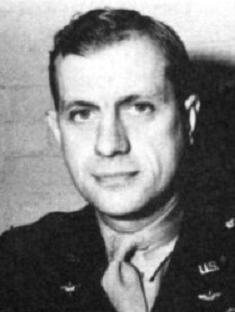Monuments
487th Bomb Group - WW2 Roll of Honour Plaque
B-17 “Treble Four” (44-8444), BG Frederick Castle (MOH), Crash Site Memorial
8th Air Force - Museum Monument

Frederick Walker Castle was born at Fort McKinley in Manila, Philippines, the son of Marie Durning and Colonel Benjamin Castle. He grew up in Tientsin, China; Washington, DC; Paris, France; and Mountain Lakes, New Jersey. He attended the US Military Academy, and after graduating in 1930 as a Second Lieutenant, Engineers, he took Air Corps training at March Field and Kelly Field. He was assigned as a pilot and assistant operations officer with the 17th Pursuit Squadron at Selfridge Field.
He resigned in 1934, and took a position with Allied Chemical followed by a period with the Sperry Gyroscope Company, while keeping reserve status with the New York National Guard. Following Pearl Harbor, he re-entered active service in January of 1942. He was assigned to Major General Ira Eaker and was posted to London as the 8th Air Force Air Chief of Staff for supply. He was promoted to Colonel in 1943, and took command of the 94th Bomb Group. In 1944, he was given command of the 4th Combat Wing, and was promoted to Brigadier General.
On 24 December 1944, the General headed a strike force of more than 2,000 B-17s and B-24s and 800 fighters against German airfields at Babenhausen on his 30th air mission. Flying with the 487th Bomb Group, as Air Leader, he flew in the Co-pilot's position with Pilot Lt. Robert Harriman, their craft in the number one position of the lead element. German fighters attacked the formation just south of Liege, Belgium. Two engines on his craft were destroyed and the plane left on fire. The radar navigator and tail gunner were wounded; the crew were ordered the crew to bail out. The still loaded craft was piloted away from friendly ground troops when it was again attacked. The fuel tank exploded, and the wing lost. The waist and tail sections separated, and it crashed, detonating the bomb load.
The General's Medal of Honor citation read in part: “In order not to endanger friendly troops on the ground below, he refused to jettison his bombs.... His lagging, unescorted aircraft became the target of numerous enemy fighters....Repeated attacks started fires in 2 engines....the bail-out order was given. Without regard for his personal safety he gallantly remained alone at the controls to afford all other crew members an opportunity to escape.... the bomber plunged earthward, carrying Gen. Castle to his death. His intrepidity and willing sacrifice of his life to save members of the crew were in keeping with the highest traditions of the military service.”
Source of information: www.findagrave.com
